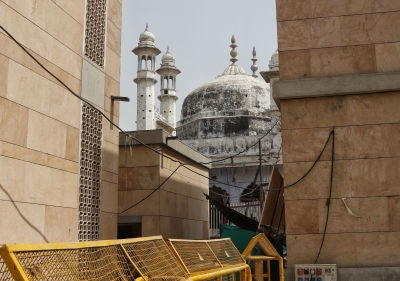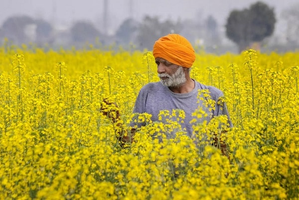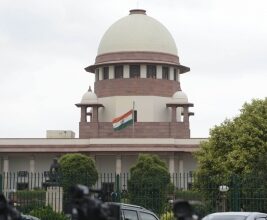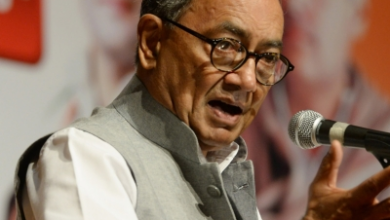Gynavapi Mosque Case: Muslim Side Cite 1937 Suit To Show Mosque, Courtyard Property Of Waqf

New Delhi, May 25: The Varanasi district court will hear the civil suit on the Gyanvapi mosque-Kashi Viswanath temple complex dispute on May 26. The Muslim side has challenged the maintainability of the civil suit by Hindu parties under Order 7, Rule 11 (maintainability) of the Civil Procedure Code (CPC).
The district judge has outlined the sequence of hearing — he would first decide the sequence in which additional pleas, objections, and add-ons would be taken up.
Speaking to IANS Mohammed Tauhid Khan, representing the Anjuman Intezamia Masjid Committee, said, “The suit is barred by law and not maintainable…”
Khan cited the 1937 suit filed by one Deen Mohammed, where it was settled that the mosque, courtyard, and the land on which the mosque exists is a property of waqf. He emphasised that issues which have been settled should not be raised again. The masjid management has claimed that the civil suit seeking unrestricted access for daily worship of Goddess Shringar Gauri and other deities on the premises violates Places of Worship (Special Provisions) Act 1991. However, the Hindu parties had contended that the survey report should be considered.
The Varanasi court started hearing the case on Monday after the Supreme Court order on May 20. “Civil Suit No 693 of 2021 shall stand transferred from the file of the Civil Judge, Senior Division, Varanasi to the court of the District Judge, Varanasi for trial and all interlocutory and ancillary proceedings in the suit shall be addressed to and decided by the court of the District Judge,” said the apex court.
The present local commissioner is appointed in a fresh suit filed in 2021. The August 8, 2021 order (allowing inspection), April 5, 2022 order (allowing videography), and April 8, 2022 (appointing commissioner) are under challenge before the Allahabad High Court in this case.
Another counsel, familiar with developments in the matter, said on September 9, 2021, the high court had stayed the Archaeological Survey of India survey, and the proceedings were in relation to an earlier suit already filed in 1991, and the stay continued to operate.
The main contentions in Order VII Rule 11: Proceedings in the 1991 suit are already stayed by the high court and the present suit is barred by Places of Worship (Special Provisions) Act 1991, which has received approval of a 5-judge bench of the Supreme Court in the Ayodhya judgment. It is claimed that the 2021 suit is filed as a via media to skirt the stay, already operating in the 1991 suit.
The present civil suit has been filed by five plaintiffs — Rakhi Singh, Laxmi Devi, Sita Sahu, Manju Vyas, and Rekha Pathak — seeking worship at the place and seeking appointment of local commissioner to conduct an inspection.
On May 20, the Supreme Court transferred proceedings of the suit by the Hindu parties seeking worshipping rights at Varanasi’s Gyanvapi mosque to the district judge, while ordering its May 17 interim order to protect the ‘Shivling’, purportedly discovered during the survey, and free access to Muslims for ‘namaz’ should continue.






